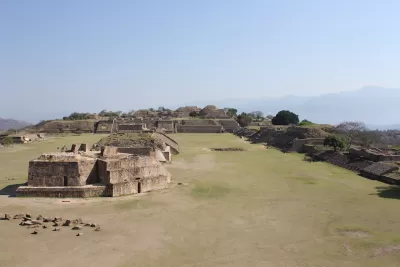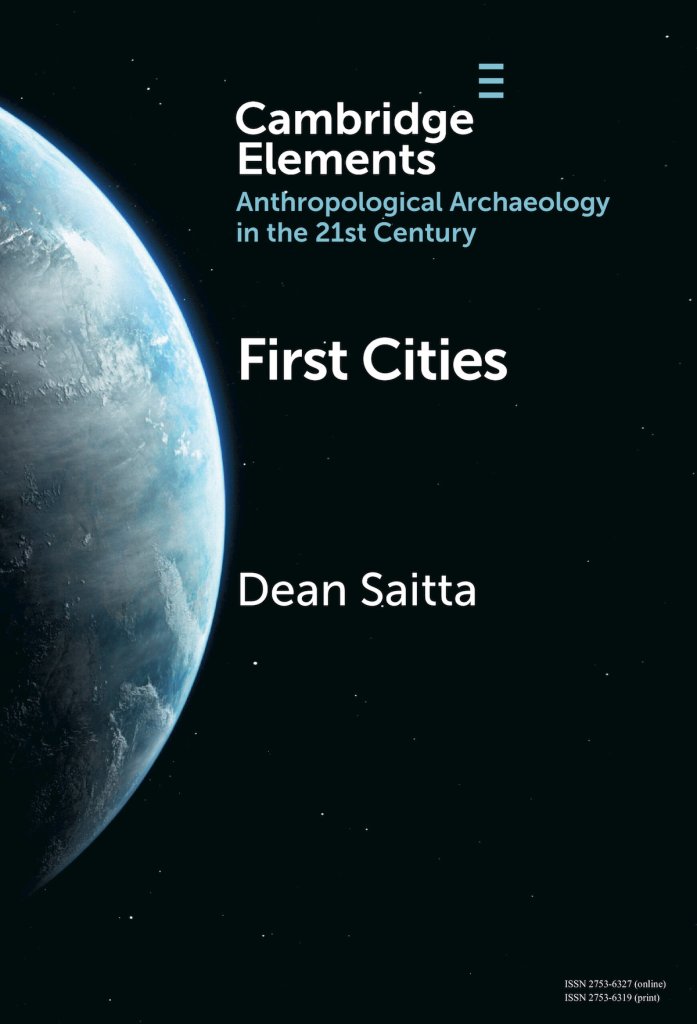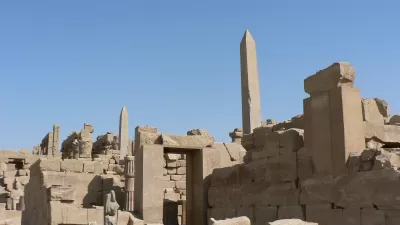A new book about urban planning in the deep human past explores principles, strategies, and lessons relevant for today.

During my nearly 12 years of posting essays for Planetizen I’ve tried to persuade readers that knowledge of cities in the deep human past has something to offer contemporary urban planners. My new book from Cambridge University Press brings together some of the insights and lessons that I find particularly compelling. The book is called First Cities: Planning Lessons for the 21st Century. It is available for free download until April 17, 2024. After that date it goes behind a paywall. A print version is also available.

The book is inspired by the vast literature in urban studies arguing that we need more and better knowledge of cities in history in order to deal with contemporary challenges around food security, service provision, health, housing, ethnic coexistence, governance, and sustainability. The need is critical given the effects on cities of pandemics and climate change, and the desire for more equitable cities spurred by insurgent movements for social justice. Practicing professionals—urban planners, designers, architects, and policymakers—are searching widely for new theories, models, and data that can inform contemporary practice. My book describes and synthesizes archaeological knowledge of humankind’s first cities for the purpose of expanding this body of source material. I examine archeological evidence from ancient Mesopotamia, Europe, Asia, Africa, and the Americas. The case studies cover more than 9,000 years of city building in the well-known heartlands of urban development as well as in lesser-known areas of the globe. I discuss the relevance of this knowledge for addressing the challenges mentioned above.
As you might expect, the ancient urban past offers no quick fixes for the problems that bedevil us today. The demographic size and spatial scale of ancient cities were different, as were the political economies that shaped their development. But archaeological knowledge can be used in the same way that any other body of knowledge about city planning can be used: to illuminate planning failures and successes, enrich debates about sustainable urban and architectural form, and inspire new imaginaries of what the city can be. I see great potential for learning from the deep past if we stay focused on general principles and strategies of city-building, work comparatively across multiple cases, and act on modest spatial scales via Richard Sennett's ‘seed planning’ or what Jaime Lerner described as ‘urban acupuncture’.
Ancient urban planners experimented with principles and strategies that presaged most of what exists in all contemporary urbanisms, including those described as ‘Green’, 'Regenerative', 'Smart', ‘Sustainable’ or, especially, ‘New’ urbanism. There are likely many more principles and strategies to be discovered as archaeological methods for investigating ancient cities improve and spatial data accumulates. The goal should be to identify ideas that can be ‘scaled-up’ to meet the various challenges of contemporary urban life. We also need to more widely share such knowledge across academic disciplines and the urban policy, planning, and placemaking professions. I hope that my book makes at least a small contribution to those efforts.

Trump Administration Could Effectively End Housing Voucher Program
Federal officials are eyeing major cuts to the Section 8 program that helps millions of low-income households pay rent.

Planetizen Federal Action Tracker
A weekly monitor of how Trump’s orders and actions are impacting planners and planning in America.

Ken Jennings Launches Transit Web Series
The Jeopardy champ wants you to ride public transit.

Opinion: Transit Agencies Must View Service Cuts as Last Resort
Reducing service could cripple transit systems by pushing more riders to consider car ownership, making future recovery even less certain.

‘Smart Surfaces’ Policy Guide Offers Advice for Building and Maintaining Urban Tree Canopies
Healthy, robust tree canopies can reduce the impacts of extreme heat and improve air quality.

New Jersey Lawsuit Targets Rent-Setting Algorithms
The state of New Jersey is taking legal action against landlords and companies that engage in what the state’s Attorney General alleges is illegal rent fixing.
Urban Design for Planners 1: Software Tools
This six-course series explores essential urban design concepts using open source software and equips planners with the tools they need to participate fully in the urban design process.
Planning for Universal Design
Learn the tools for implementing Universal Design in planning regulations.
Heyer Gruel & Associates PA
Ada County Highway District
Institute for Housing and Urban Development Studies (IHS)
City of Grandview
Harvard GSD Executive Education
Toledo-Lucas County Plan Commissions
Salt Lake City
NYU Wagner Graduate School of Public Service





























